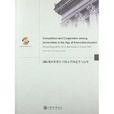《國際化時代背景下的大學間競爭與合作》講述Hosted by Shanghai Jiao Tong University(SJTU),the Fifth AcademicConsortium 21 International Forum was held in Shanghai from October 18 to 21,2010.The Forum brought more than 100 participants together to discuss the significance of,strategies for,and benefits of the intemationalization of highereduction.In mtendance were representatives from 16 AC21 member institufionsand two institutions considering membership.Additionally.me Forum attractedprofessors and educational specialists from numerous non-member universities andinternational organizations around the globe.
基本介紹
- 書名:國際化時代背景下的大學間競爭與合作
- 作者:喻愷
- 出版日期:2011年6月1日
- 語種:簡體中文, 英語
- ISBN:7313073119, 9787313073112
- 品牌:上海交通大學出版社
- 外文名:Competition and Cooperation Among Universities in the Age of Internationalization
- 出版社:上海交通大學出版社
- 頁數:288頁
- 開本:16
- 定價:39.00
內容簡介
圖書目錄
About the Contributors
Preface: A Successful AC21 International Forum in Shanghai
Section One: World and World-Class Universities
1. The World University -- Teamwork in a Time of Financial Turbulence
2. Building World-Class Universities in the Age of Internationalization: The "E" Elements in Nagoya University
3. Creative Analogies and the Reading of Rankings
4. The Effective Use of Global Rankings in Making Institutional Strategic Plans and Positioning for Building a World Class University
Section Two: Education/Training Development
5. The Internationalization of Doctoral Education - A Two-Way Approach: Promoting Productive Educational Experiences for PhD Students
6. A Model of Researcher Education that Facilitates International Research Collaboration and Internationalization of the Curriculum
7. Researching Abroad: Developing Self, Developing Nation?
8. The Shaping of China's Postdoctoral Community
Section Three: National and University Case Studies
9. Using World University Ranking to Inform and Guide Strategic Policy Making: A Case Study of a Canadian Research University
10. World-Class Universities or a World-Class System: Which Way for Australia?
11. Academic Partnerships in the Age of Globalization: Exploring Policies for Cross-Border Collaboration in Hong Kong
12. Understanding Research Performance: The Evolution of UWA's Research Management Tool, Socrates
13. A World-Class University in China? The Case of Tsinghua
14. Building World-Class Universities in the Age of Internationalization
15. Deploying the Chinese Knowledge Diaspora: A Case Study of the 111 Project at Peking University
文摘
插圖:
how today's "virtuous and active ( student / PhD ) citizens" ( Dean, 1999 )under the socialist market economy are different or are evidence of some continuity with the " virtuous and active (student / PhD ) citizens" under the planned economy.
Drawing on Hoffman's ethnographic research (incorporating govemmentality)of young university graduates from Dalian and their search for jobs (Hoffman,2006, 2010 ) may provide insight into the formation of "suitable" science PhD citizens. Just as the environment of higher education has dramatically altered in the past 20 years, so has the environment of work. Just as the expectations placed upon university researchers and PhD candidates have dramatically altered, so to have the expectations placed on young workers. For instance, one of the reforms of the Chinese higher education system and indeed the Chinese economy itself is the change to the job assignment system that took place from the 1980s onwards. Under the planned economy, graduates were assigned to positions wherever they were needed for national development. With greater opening to the West and the demands of a more market-orientated economy, graduates were no longer allocated to posts and "autonomy" in job selection began. But what new types of graduate citizens are required for this new job market? What attributes do graduates need in their search for work in such a new environment? How will graduates view notions of nationalism and national development in their search for work? What characteristics will they require to be viewed as virtuous and active citizens in their search for work? How are they prepared for this new work environment and how do they prepare themselves? More practically, how do these new graduate citizens learn to be active in their job pursuit (the formulation of curriculum vitae, the correct attitude in interviews etc)? How do they use the talent markets and talent exchange centres that have emerged as the venue for labour allocation through the shuangxiang xuanze, "mutual choice" system? These young university graduates seeking work, like their Phl) student counterparts, are moving in a world unfamiliar to their families and university mentors who are most likely to have received their positions under the planned economy through the job assignment system.

